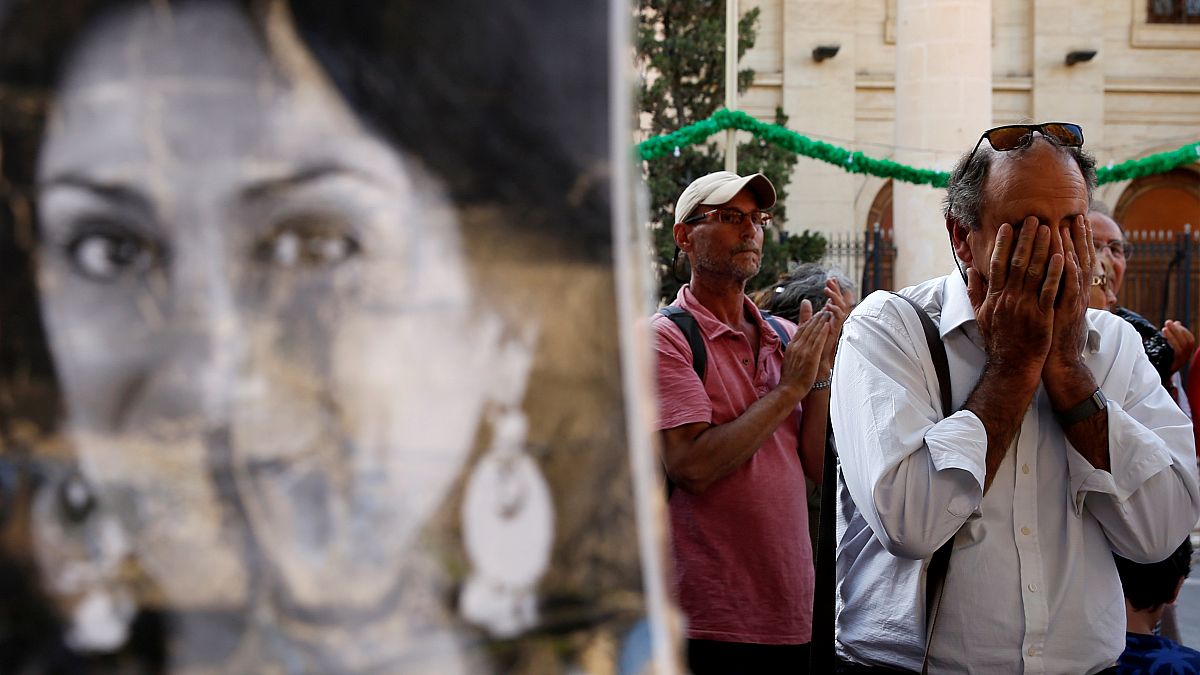The climate of press freedom in Malta "remains dire" two years after investigative journalist Daphne Caruana Galizia was killed in a car bomb, Reporters Without Borders has claimed in a comprehensive new report.
The climate of press freedom in Malta "remains dire" two years after investigative journalist Daphne Caruana Galizia was killed in a car bomb, Reporters Without Borders has claimed in a new report.
It said the Mediterranean island had dropped 30 places on its World Press Freedom Index since 2017, which is one of the sharpest declines globally.
The group condemned "systemic failings" in Malta that "allowed a journalist to be assassinated, and that continue to obstruct efforts towards justice".
The Reporters Without Borders report, which was co-authored by Maltese news organisation The Shift News and funded in part by the Justice for Journalists Foundation, calls for an independent public inquiry into the assassination.
Two years on after the car bomb killed the 53-year-old investigative journalist, there is still "no justice", the report says, examining the flawed murder investigation, including questions remaining about those who were arrested for the crime.
"When taking into account the fact that the police had known exactly where to find the suspects at the time of their arrest, and the allegation that those charged had known they would be arrested that day, serious concerns have been raised regarding the connections of those arrested," the report states.
Reporters Without Borders and The Shift say that there are as many as 26 libel cases against Caruana Galizia that remain pending. The EU has called on Malta to drop them.
An independent public inquiry
The Maltese government agreed to launch a public inquiry last month, just six days before a deadline that had been set by the Parliamentary Assembly of the Council of Europe.
But Reporters Without Borders, citing Maltese journalists, has said that there are concerns that there about the inquiry's impartiality including conflicts of interest amongst board members.
The special rapporteur sent by the EU's parliamentary assembly also said that the Maltese government's inquiry "as currently constituted" did "not meet the Assembly's expectations".
In a report published in September, the UK House of Commons Foreign Affairs Committee said that the UK Foreign Office "should publicly press for an independent judicial public inquiry in Malta into the murder of the journalist Daphne Caruana Galizia."
The Commons' committee emphasised: "her death should set a precedent for accountability and not, as it does currently, for impunity".
In a statement released to recognise the two year anniversary of her assassination, David Sassoli, the President of the European Parliament said: "It is never acceptable to die because you are doing your job."
Three men have been under arrest since December 2017 and are due to stand trial for the murder. However, police are continuing their investigations to try to find out who ordered the killing, and why.
"Not only is the freedom enjoyed by the press in Malta not dire, but measures to protect free speech have been constantly strengthened in the past six years since the current government came to power," a spokeswoman for the Maltese government told Euronews in a statement.
"That includes the 2013 Whistleblowers Act, and the latest Media and Defamation Act (modelled on the UK's Defamation Act 2013), both of which strengthen the right to freedom of expression in Malta.
"So much so, the Office of the Organization for Security and Co-operation in Europe Representative on Freedom of the Media concluded that Malta’s new Media Act 'includes some remarkable provisions with regards to defences in libel civil actions, as well as to the imposition limits of libel damages by the Court,' with the law including 'specific provisions regarding trade libel and defamation of deceased persons… as well as a comprehensive regulation of the right', and that 'the text also incorporates a series of provisions related to the protection of journalists’ sources'.”
